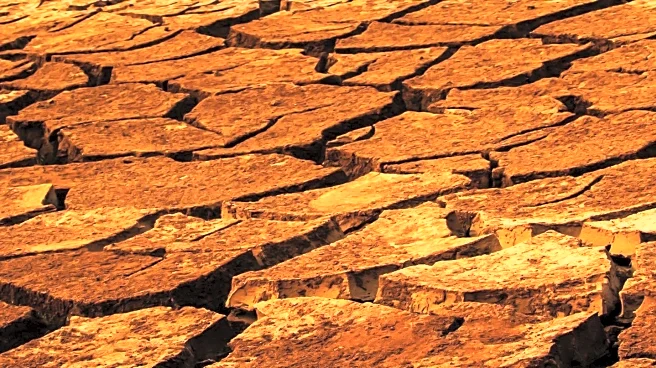What's Happening?
Climate Fresk, a card game based on the Intergovernmental Panel on Climate Change (IPCC) report, is gaining popularity as a tool to educate people about climate change. The game simplifies complex scientific data into an interactive format, using cards to illustrate the causes, effects, and feedback loops of climate change. Created by French scientist Cédric Ringenbach, the game has been played by over 2 million people worldwide, including 33,000 Americans. It is designed to foster understanding and discussion about climate change, with participants from diverse backgrounds engaging in the game in various settings such as schools, bars, and government offices.
Why It's Important?
The Climate Fresk game represents an innovative approach to climate education, making complex scientific information accessible to the general public. By engaging people in interactive learning, the game helps raise awareness about the urgent issues of climate change, such as rising sea levels, extreme weather events, and biodiversity loss. This educational tool can potentially influence public opinion and policy by encouraging informed discussions and actions. As climate change continues to impact communities globally, tools like Climate Fresk are crucial in fostering a deeper understanding and motivating collective action to address environmental challenges.
What's Next?
The continued expansion of Climate Fresk into new regions and languages suggests a growing interest in climate education. As more people participate, the game could inspire local initiatives and policy changes aimed at mitigating climate change effects. The game's ability to bring together individuals from various backgrounds to discuss climate issues may lead to increased collaboration and innovation in addressing environmental challenges. Future developments may include adapting the game for specific cultural contexts and integrating it into educational curricula to reach broader audiences.
Beyond the Headlines
Climate Fresk not only educates but also empowers participants to think critically about their role in combating climate change. By facilitating discussions on potential solutions, the game encourages proactive behavior and community engagement. It highlights the importance of collective action and the need for systemic changes to address climate issues effectively. The game's success underscores the potential of gamification in education, offering a model for other complex topics that require public understanding and involvement.









